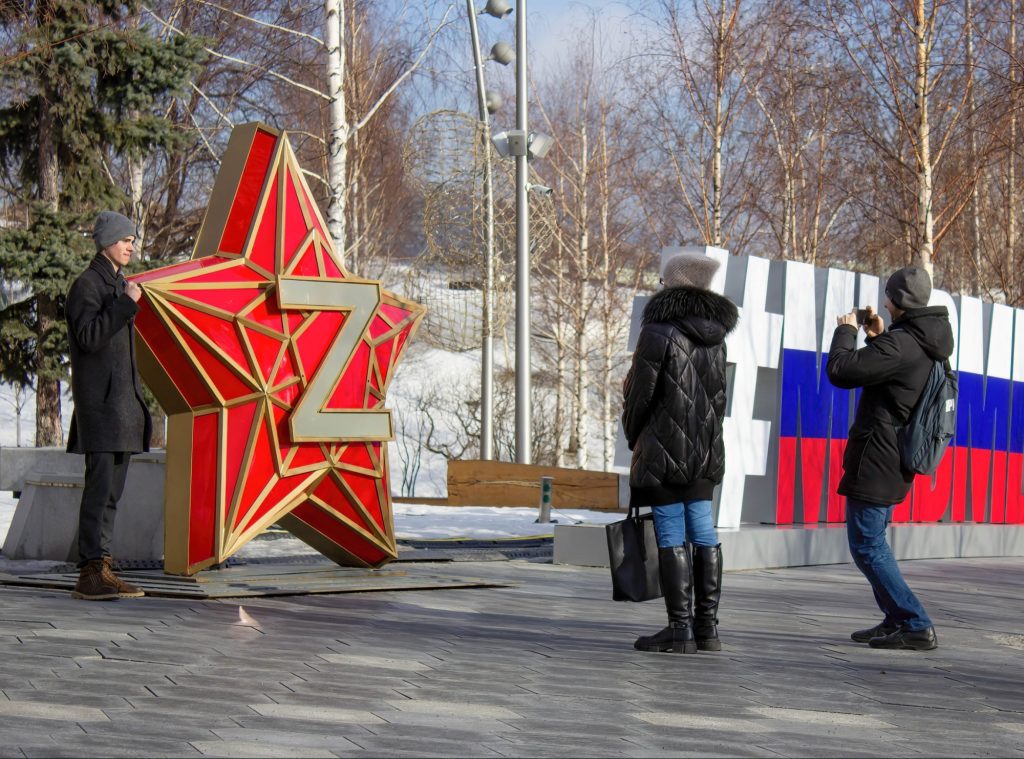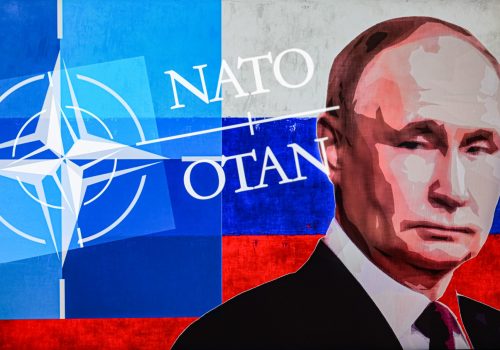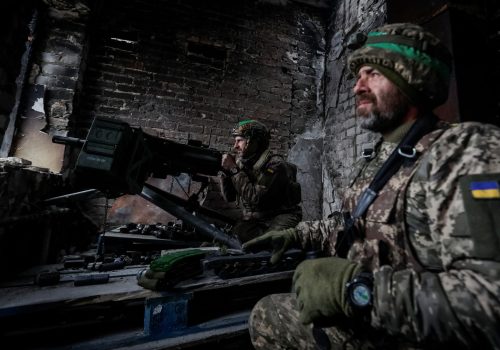Since Russia’s full-scale invasion of Ukraine began just over one year ago, growing numbers of international commentators and policymakers have reached the conclusion that the invasion is an act of old-fashioned imperialism. Until recently, such characterizations of Putin’s Russia had been restricted to the fringes of the international debate, but they are now firmly established in the mainstream.
One reason for the erstwhile reluctance to describe Russian behavior as imperial was the implication that despite the fall of the USSR, the Russian Federation itself was still fundamentally an empire in terms of structure and mentality. This creates obvious policy and diplomatic complications for Western leaders seeking to engage with Moscow and integrate Russia into a common European security architecture. Added to this is the understandable fear of playing into Kremlin narratives about the West seeking to break up Russia.
It is perhaps for these reasons that recent use of the imperial label has most often been in the context of Moscow “re-acquiring” an imperial mindset under Vladimir Putin’s leadership. In reality, however, it makes more sense to view today’s Russia within the context of ongoing imperial decline.
This process of imperial retreat began in 1989 with the loss of the outer empire in Central and Eastern Europe, and has since led to violent efforts in Chechnya, Georgia, and Ukraine to preserve what Russia views as its inner empire. Recognizing modern Russia’s imperial identity will not make policy and diplomacy any easier, but it should lead to fewer illusions.
Stay updated
As the world watches the Russian invasion of Ukraine unfold, UkraineAlert delivers the best Atlantic Council expert insight and analysis on Ukraine twice a week directly to your inbox.
When addressing today’s Russian Federation, the concept of “de-imperialization” probably has wider utility than “decolonization,” as it focuses on the core imperial issue of power without the need for agonized debate about the exact nature of a colony.
In respect of institutions and imperial organization, much about Russia has remained constant since the initial phase of decline in 1989-91. Within the Russian Federation, elected regional governors were short-lived phenomena and economic flows have continued to move overwhelmingly from the peripheries to the metropole. In the military sphere in Ukraine, which the Kremlin sees as integral to the core of its empire, ethnic minorities from the peripheries of the Russian Federation have been disproportionately mobilized in order to preserve favorable sentiment in major cities like Moscow and Saint Petersburg.
Beyond the Russian Federation, many imperial linkages have also remained. The Commonwealth of Independent States was swiftly established in 1991, while the non-Russian former Soviet republics became known as the “near abroad,” indicating Russian perceptions of partial sovereignty. Tellingly, Russia’s new internal security service, the FSB, was given the remit for these former Soviet republics rather than the Kremlin’s external service, the SVR.
While the 1989 revolutions in Central Europe and the 1991 Soviet collapse entailed an acknowledged loss of prestige, imperial attitudes in Russia’s metropolitan political, academic, cultural, and information spaces have remained largely devoid of self-examination. This has become abundantly clear from the bilious propaganda targeting Ukrainians (along with Kazakhs, Baltic peoples, and Georgians) over the last year.
Crucially, Russia did not suffer a decisive military defeat in the 1989-1991 period in the fashion that ended the other land-based European empires of Germany, Austria-Hungary, and Ottoman Turkey. Even with strategic defeat in Ukraine, Russia is not going to be occupied and have a post-imperial reality imposed on it. And so, ultimately, it is only Russians who can carry themselves to that reality, as the maritime empires of Britain, France, the Netherlands, and Portugal have substantially, though not entirely, managed to do following their respective military failures to sustain empire.
Eurasia Center events

Despite the genuine security complications entailed by a contiguous imperial core and peripheries, a conscious process of de-imperialization still seems, in principle, a route open to Russia. It need not entail further territorial losses from Russia’s recognized 1991 borders, but should involve Russian federal institutions being reformed and the independence of neighbors being respected. This should include their right to join an alliance like NATO without threats of invasion, just as Finland and Norway have been able to do.
Indeed, this has latterly been the message from Russian opposition figures including Gary Kasparov, Mikhail Khodorkovsky, and Alexei Navalny, who have outlined policies for continuing Russia’s process of de-imperialization. This does not necessarily have to be a hard sell to the Russian people. The metropoles of Europe’s maritime empires initially feared that the loss of empire would make them poorer; in fact, it made them richer.
In contrast, Putin and the clan which assumed power in Moscow at the turn of the millennium have coordinated all policy with the aim of reversing rather than managing Russia’s imperial decline. This has meant denial of the long-known problem of Russian chauvinism and further concealing rather than confronting of Russian and Soviet crimes committed in the name of empire.
The International Criminal Court’s issuing of an arrest warrant for Putin for war crimes means the process of delegitimizing his leadership is now underway. The logical concomitant policy step is building relationships with alternative Russian elites who already or might in future support further de-imperialization.
In addition to realistic policy-making at the state level, Western academics and journalists can contribute to “decolonizing” Russian, Eurasian, and Slavonic studies and associated cultural spaces, drawing on similar approaches to European and North American history.
Western governments and their cultural emanations can prioritize engaging with countries of the global south to debunk the absurd but successful Kremlin narrative portraying Russia as an anti-imperial center of power, both historically and still today. This might include developing university programs and organizing academic conferences and exchanges, but also via objective news, cinema, television, and social media. Facilitating messages from countries like Ukraine, as a former imperial subject, might also modify policy-making in these countries.
The process begun in 1989 certainly did not culminate in 1991. Renewed awareness of its ongoing nature is to be welcomed, but from that should flow realistic policy that supports rather than compromises Russia’s former imperial subjects, and empowers Russians working toward a post-imperial future.
Richard Cashman is an Adjunct Fellow at the Centre for Defence Strategies.
Further reading
The views expressed in UkraineAlert are solely those of the authors and do not necessarily reflect the views of the Atlantic Council, its staff, or its supporters.

The Eurasia Center’s mission is to enhance transatlantic cooperation in promoting stability, democratic values and prosperity in Eurasia, from Eastern Europe and Turkey in the West to the Caucasus, Russia and Central Asia in the East.
Follow us on social media
and support our work
Image: A man poses next to an installation of the pro-war 'Z' letter inside the Red Star, one of the most widely recognizable Soviet symbols, in Moscow's Zaryadye Park. (Photo by Vlad Karkov / SOPA Images/Sipa USA)




